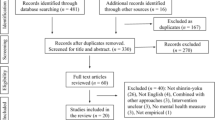Abstract
This paper studies the effect of Quranic therapy on psychological diseases and spiritual diseases. The experiments have been conducted on a random sample with 121 patients from both genders. The procedures that have been followed were different sessions with the patients, who were given some verses from the Holy Quran to listen within a specific period of time. After that, each patient was given a remedy program. This study aimed to measure the effectiveness and responsiveness of patients to receive treatment through Quran. This study highlighted the employment of a quantitative research, which achieved its objective through validity and reliability. The results of the effectiveness factor came after ability and willingness and gave a result of 92.6% for those who support the contention that the Quran has a significant healing influence. Also, some of the patients who regularly attended Quranic therapy sessions have been successfully cured, 81.8% of the sample believe that Quranic therapy sessions support their health needs. This study has empirically proved that the sound of the Holy Quran is an effective treatment for those who suffer from spiritual and psychological issues. Folk medicine and other traditional methods of treatment are important field of study that require further investigation. The study also illustrates that it’s highly important for patient to have confidence in his doctor or healer. Furthermore, our results show that the ability and willingness positively and significantly are related to the effectiveness and responsiveness, also effectiveness positively and significantly related to the responsiveness. Therefore, the patients satisfied to receive treatment through Quran and they have the ability and willingness to do so as they believe that Quran is an essential part of their life.




Similar content being viewed by others
References
Abdel-Khalek, A. M. (2008). Religiosity, health and well-being among Kuwaiti personnel. Psychological Reports,102(1), 181–184.
Al-Banna, K. M. (2009). The healing energy (1st ed.). Jorden: Dar World of Culture for Publishing and Distribution.
Al-Habeeb, T. A. (2004). Pilot study of faith healers views on the evil eye, jinn possession, and magic in Saudi Arabia. International Journal of Mental Health and Addiction,2004, 1.
Ally, Y., & Sumaya, L. (2008). South African Muslim faith healers perceptions of mental illness: Understanding aetiology and treatment. Journal of Religion and Health,47(1), 45–56.
Babamohamadi, H., Nemat, S., Harold, K. G., Changiz, J., & Raheb, G. (2015). The effect of holy Qur’an recitation on anxiety in hemodialysis patients: A randomized clinical trial. Journal of Religion and Health,54(5), 1921–1930.
Bagozzi, R. P., Davis, F. D., & Warshaw, P. R. (1992). Extrinsic and intrinsic motivation to use computers in the workplace. Journal of Applied Social Psychology,22(14), 111–1132.
Boris, G. (2015). The economic origins of the evil eye belief. Journal of Economic Behavior and Organization,110, 119–144.
Dein, S. A., Napier, M., & Jinn, A. D. (2008). Psychiatry and contested notions of misfortune among East London Bangladeshis. Transcultural Psychiatry,45(1), 31–55.
Fornell, C., & Larcker, D. F. (1981). Evaluating structural equation models with unobservable variables and measurement error. Journal of Marketing Research,18, 39–50.
Hair, J. F., Black, W. C., Basin, B. J., & Anderson, R. E. (2010). Multivariate data analysis (7th ed.). Upper Saddle River: Pearson Prentice Hall.
Hatami, H., Hatami, M., & Hatami, N. (2013). The religious and social principles of patients’ rights in holy books (Avesta, Torah, Bible, and Quran) and in traditional medicine. Journal of Religion and Health,52(1), 223–234.
Hussain, F. (2013). ‘Heart-talk’: Considering the role of the heart in therapy as evidenced in the Quran and medical research. Journal of Religion and Health,52(4), 1203–1210.
Hussein, F. M. (1991). A study of the role of unorthodox treatments of psychiatric illnesses. Arabian Journal of Psychiatry,2, 170–184.
Kamali, A. (2005). Subject interpretation of Qur’an. Tehran: Maaref Publication. (Persian).
Khalifa, N., & Hardie, T. (2005). Possession and jinn. Journal of Royal Society of Medicine,98(8), 351–353.
Murray, C. J., & Lopez, A. D. (1997). Alternative projections of mortality and disability by cause 1990–2020: Global burden of disease study. Lancet,349(9064), 1498–1504.
Pompili, M., Lester, D. M., Innamorati, M., Tatarelli, R., & Girardi, P. (2008). Assessment and treatment of suicide risk in schizophrenia. Expert Review of Neurotherapeutics,8(1), 51–74.
Ralph, B. (2015). Building children and young people’s resilience: Lessons from psychology. International Journal of Disaster Risk Reduction,14, 115–124.
Acknowledgements
The authors would like to thank a Research and Development Division at Academy of Islamic Studies for financial assistance to prepare this article. The grant provided to the authors under Research Project BK021-2014 is highly appreciated. We also would like to thank the Research Management Centre (RMC) and Ibnu Sina Institute for Scientific and Industrial Research (ISI-SIR), at Universiti Teknologi Malaysia for supporting this research.
Author information
Authors and Affiliations
Corresponding author
Rights and permissions
About this article
Cite this article
Saged, A.A.G., Mohd Yusoff, M.Y.Z., Abdul Latif, F. et al. Impact of Quran in Treatment of the Psychological Disorder and Spiritual Illness. J Relig Health 59, 1824–1837 (2020). https://doi.org/10.1007/s10943-018-0572-8
Published:
Issue Date:
DOI: https://doi.org/10.1007/s10943-018-0572-8




